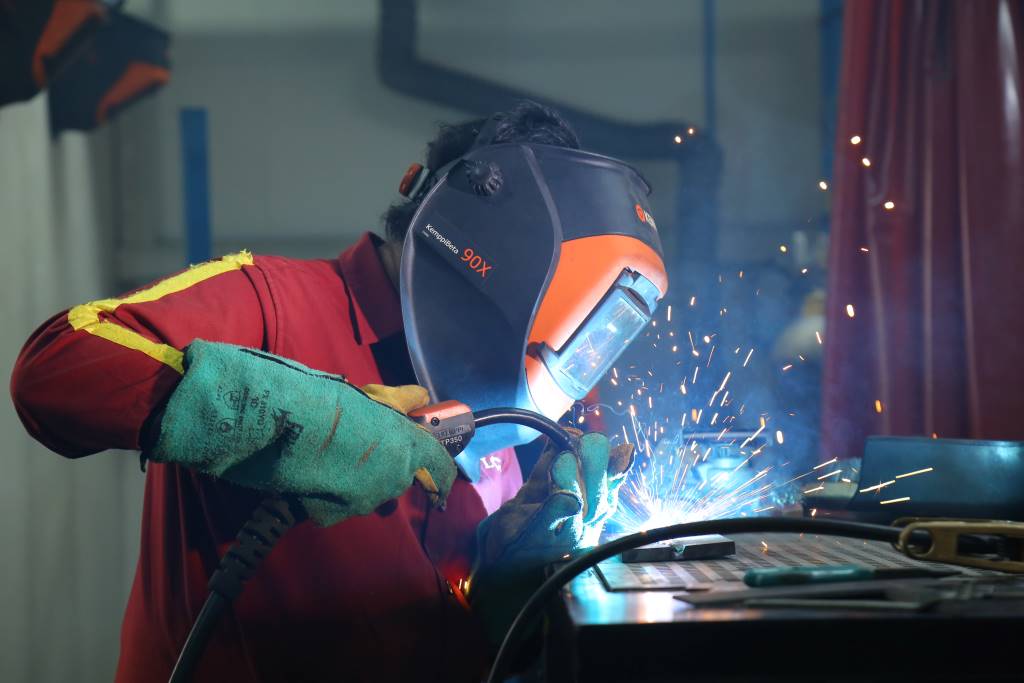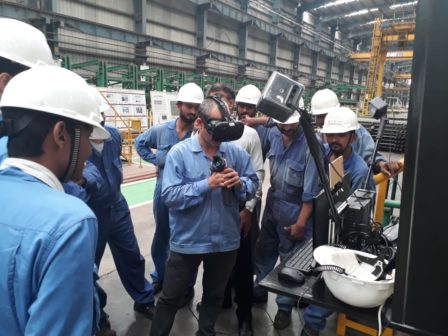The manufacturing industry has seen fast-track growth in recent years with automation and technological advancements. However, the recent COVID-19 crisis brought all the manufacturing units to a halt. The post-COVID situation is going to be different and the businesses will have to restart the activities with the available workforce, as most of the migrant labourers went back to their home states. This is where simulator-based training will help to cope with the COVID-19 crisis in the manufacturing industry.
Simulator-based training in the manufacturing industry
To ramp up production in the post-COVID times, the manufacturing industry would need many welding and painting professionals. Gone are the days when long hours of manual labour were associated with manufacturing. In recent years, many manufacturing processes have been automated, the use of the latest tools and equipment has increased. These technological advancements would need a highly skilled workforce to cope up with the new requirements of the industry.
 Both the new entrants and the existing workforce need to be trained rapidly to meet the changing needs of the manufacturing industry. To address the challenge of the skill gap, the manufacturing sector must adopt simulator-based training to skill and upskill the workforce.
Both the new entrants and the existing workforce need to be trained rapidly to meet the changing needs of the manufacturing industry. To address the challenge of the skill gap, the manufacturing sector must adopt simulator-based training to skill and upskill the workforce.
Why do industries need to invest in simulator-based training?
Simulation-based training will help the manufacturing industry to close the skill gap, with the active participation of trainees, where they can learn the consequences of their mistakes before attempting it on real-life situations. Training providers will be able to set the simulators for various skill levels from beginner to advanced, thereby addressing the issues of all the trainees.
Related Article: It is time training providers adopt simulator-based painting training – Read More: https://nationalskillsnetwork.in/it-is-time-training-providers-adopt-simulator-based-painting-training/
 To revamp the manufacturing processes and to fast-track the training process, students from different parts of the country need to be trained at the earliest possible time. Simulators can be programmed to different regional languages, which can help in multilanguage simulation training. With simulation-based training, trainees will not only learn technical skills and knowledge but also learn in-action skills and communication skills. Trainees will be able to predict the situations before they occur and learn to correct it with the help of feedback provided on the simulator.
To revamp the manufacturing processes and to fast-track the training process, students from different parts of the country need to be trained at the earliest possible time. Simulators can be programmed to different regional languages, which can help in multilanguage simulation training. With simulation-based training, trainees will not only learn technical skills and knowledge but also learn in-action skills and communication skills. Trainees will be able to predict the situations before they occur and learn to correct it with the help of feedback provided on the simulator.
Therefore, simulation-based training is a successful training method, that can be used for knowledge transfer and helps in addressing the skill gap across job-roles in the manufacturing industry.
Guest Author: Sabarinath C Nair, Founder – CEO, Skillveri Training Solutions Pvt Ltd.
For more information and a demo of our simulators, please contact us – sales@skillveri.com












